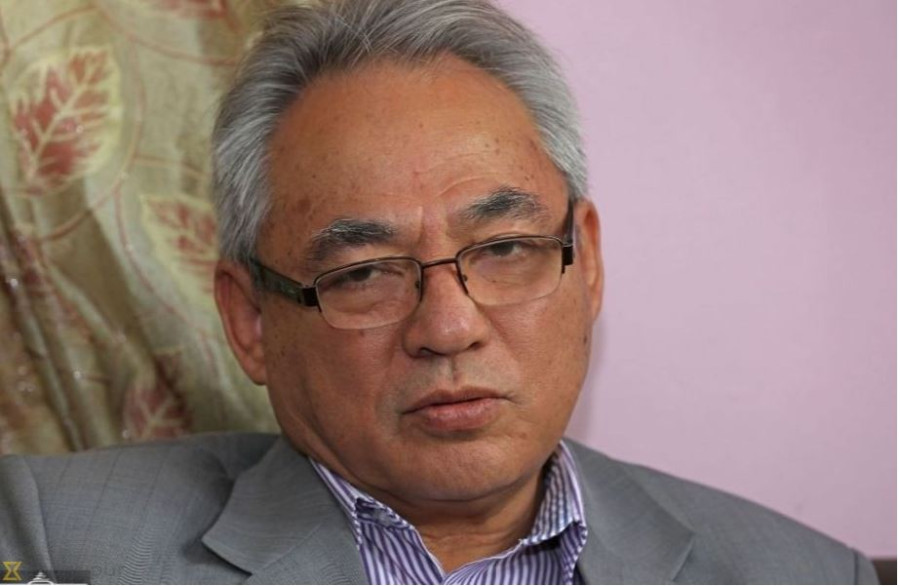Politics
Benefits for Thapa-led group concern leaders of the Maoist stream in unified communist party
One of the senior-most leaders of the Maoist insurgents during the ‘people’s war’—which ended in 2006—Thapa has always been at the crucial decision-making level in the CPN (Maoist Centre) and also in the new party.
Tika R Pradhan
Leaders from the Maoist stream in the ruling Nepal Communist Party have been expressing concerns over increasing opportunities for the leaders of the Ram Bahadur Thapa faction, which had joined the erstwhile Maoist Centre after deserting the group led by Mohan Baidya.
With most of Thapa’s supporters receiving the benefits—both in the government and the unified party—other leaders of the former Maoist faction have started expressing discontent within the party.
One of the senior-most leaders of the Maoist insurgents during the ‘people’s war’—which ended in 2006—Thapa has always been at the crucial decision-making level in the CPN (Maoist Centre) and also in the new party.
According to leaders, the only ministry allotted to the erstwhile Maoist Centre in the Province 1 government is led by Indra Aangbo of Thapa’s group while the deputy speaker of the provincial assembly, Saraswoti Pokhrel, was also from the same group.
Internal affairs and law ministers Hari Chuman (Gandaki Province) and Kul Prasad KC (Province 5) also represent Thapa’s group.
In the federal government, Thapa is leading one of the most crucial offices, the Home Ministry. Two other leaders from the now-dissolved Maoist party—Shakti Basnet and Barshaman Pun, who were in charge of the environment and finance ministries—now lead the forest and environment, and energy, water resources and irrigation ministries, respectively.
In the House of Representatives, Dev Prasad Gurung of the Thapa faction is the chief whip of the Nepal Communist Party (NCP).
Leaders said that many chairs of the parliamentary committees of provincial assemblies were given to Thapa supporters. Thapa also got many of his leaders as lawmakers as he led the three-member panel that selected the party’s candidates for the 2017 general election. Even the leaderships of provincial and district committees involve a significant number of Thapa’s men in the Maoist quota.
Some leaders believe that NCP Co-chairman Pushpa Kamal Dahal was not bothered with the issue because he wanted to attract leaders to his camp while those close to Dahal were furious over the distribution of berths to those who once “betrayed the party” by splitting it.
While some leaders believe that Thapa’s group happened to get the maximum benefit in the state mechanism and also in the party just because they had more senior leaders in his group, many others complain of discrimination.
“It seems that the leaders should desert the party once to get better opportunity here,” said Hemraj Bhandari, a central committee member. “When the leaders who dumped the party for some interests get better opportunities, what message would that extend to the leaders supporting the party continuously?”
However, the role of Thapa was never been appreciated as he failed to take quick decisions. Therefore, some leaders believe that party Co-chair and Prime Minister KP Sharma Oli has been taking advantage of his ‘introvert’ nature. “Even Dahal was not for supporting Thapa as home minister,” said a Standing Committee member close to Dahal, adding that he was more a choice of Oli.
Dahal, threatened by his growing popularity during the decade-long insurgency, had taken action against Thapa but they were always together in the party after the Chunbang meeting that led the Maoist party towards the peace process.
However, later in 2012 Thapa sided with Baidya and split the party vertically, accusing Dahal of having betrayed the revolution. A year earlier, he had also sided with Mohan Baidya, Baburam Bhattarai and Narayan Kaji Shrestha in the Dhobighat incident that eventually elevated Bhattarai to the post of prime minister.
In 2016, Thapa, along with a majority of leaders in the Baidya-led party, returned to the mother party.
However, leaders coming from other factions—including one led by Netra Bikram Chand—have been “humiliated” and ignored. A group of leaders led by Tilak Pariyar had joined the Maoist mainstream deserting Chand’s party but Pariyar, who was included in the nine-member party secretariat, is just a central committee member along with Basanta Gharti Magar.
“We have sensed increasing factionalism in the party, which will neither create a party nor ensure justifiable inclusion,” Pariyar said, adding that the NCP leadership did not discuss with the groups joining the Maoist party any issues including the selection of the poll candidates, let alone other crucial issues.
However, leaders have urged the party leadership to settle the issues while forming the politburo and unified sister wings of the NCP. “Now the party can make some corrections,” said Pariyar.
Devendra Poudel, a standing committee member who joined the Maoist party deserting Baburam Bhattarai’s now-dissolved Naya Shakti Party, said that at the moment it seems like that most of the leaders from the Thapa faction have got more opportunities, but the issue should settle once the part unification process is over.




 17.12°C Kathmandu
17.12°C Kathmandu















